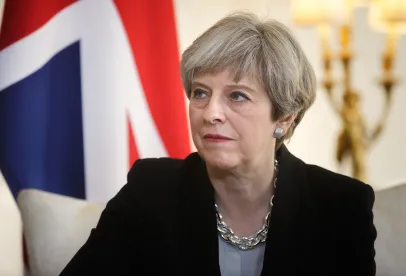It is fair to say, this is not the result that many were expecting.
Theresa May’s Conservatives, who anticipated an increased number of seats throughout the General Election campaign, find themselves the largest party in Parliament, but without an overall majority. At the time of writing, it appears that the Conservatives have struck a non-formal deal with the Democratic Unionist Party (the largest Northern Irish party, which supports Brexit) to allow Theresa May to continue as prime minister in a minority government.
Even if the Conservatives had increased their majority materially, there was unlikely to be significant additional certainty about what Brexit meant. For a General Election ostensibly called because of Brexit, discussions were limited to which leader was trusted to deliver it, rather than what “it” would look like.
In the immediate aftermath of the result, a narrative is developing that the hung parliament may result in a softer Brexit.
It does not necessarily follow that this should be the case. It is possible that the strong performance of the Labour Party was driven by a higher-than-expected turnout from young voters looking, in part, to express their displeasure at the result of the referendum. It is also possible that Conservative leavers were less motivated to vote.
A reality check is needed. The Liberal Democrats, the most pro-EU of the parties, only won 12 seats. The SNP, who oppose Brexit, lost 21 seats. The Conservative Party and Labour Party, who both support leaving the single market and scrapping free movement of people, hold 580 of the 650 seats. Even the idea that a vote for the Labour Party could be seen as some sort of “protest” is not necessarily borne out by the evidence. According to the Lord Ashcroft Polls, Brexit was the most important issue for 48% of Conservative voters, but only 8% of Labour voters.
Is there a scenario in which the UK revokes Article 50 or the EU27 agrees to extend the two-year period for agreeing the terms of Brexit? The legal question of whether Article 50 is revocable has not yet been determined, but most legal scholars (and indeed those who drafted it), take the view that it is. At the time of writing, there does not seem to be any political desire to revoke Article 50, not least because if it is revoked, in practice it may never be exercised again, and this was confirmed by the prime minister outside 10 Downing Street.
On the point of whether the EU27 is likely to agree to an extension, the answer would appear to be a resounding no. The EU does not want to delay Brexit. It does not care about domestic UK politics, save to the extent that it would prefer a strong and stable government that will not be overruled by its parliament, or overly influenced by other stakeholders who do not like the compromises that are required to be made. President of the European Council Donald Tusk unequivocally tweeted earlier: “We don’t know when Brexit talks start. We know when they must end. Do your best to avoid a “no deal” as result of “no negotiations”.”
It is not inconceivable, however, that this General Election may soften the direction of Brexit. Last night, Brexit Secretary David Davis indicated that the election result may be interpreted as a decision by the British people to choose a Brexit that does not involve leaving the single market and customs union. Is it possible that, having modelled the various permutations, his view is that the best Brexit for the UK is a softer Brexit, leaving the UK within the single market? If it is, Theresa May did not mention it after returning from her meeting with HM The Queen.
It would mark a significant, unexpected change in the approach to Brexit and may not have the necessary support within the Conservative Party. But we live in a time of significant, unexpected changes.




 />i
/>i

